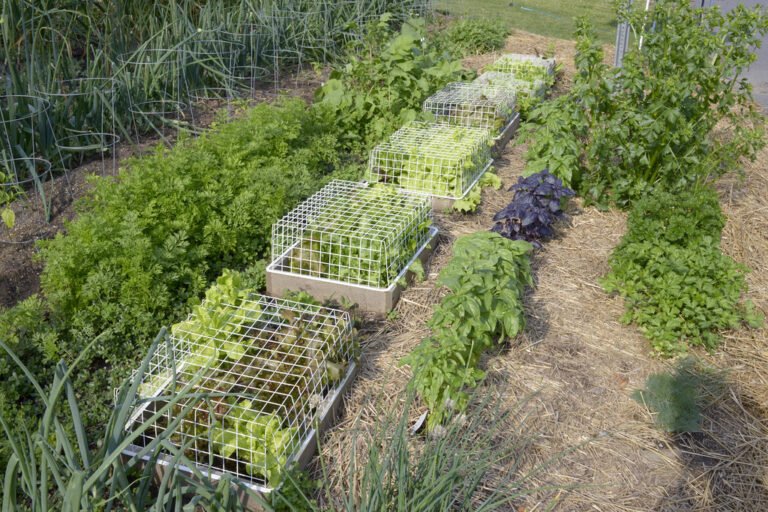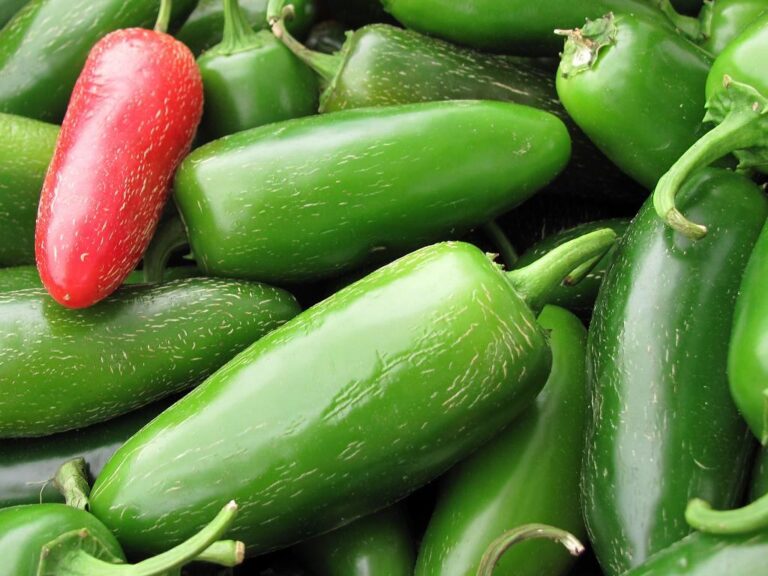Understanding the Best Fertilizers for Broccoli Growth
Are you struggling to find the best fertilizers for your broccoli plants? Look no further! In this article, we will guide you through understanding the nutrient needs of broccoli and help you choose the right fertilizers for optimal growth. Whether you prefer organic or synthetic options, we've got you covered. We will also discuss the timing and frequency of fertilizer application, the importance of soil pH, and offer troubleshooting tips for common fertilizer issues. Get ready to boost your broccoli harvest!
Benefits of Using Fertilizers for Broccoli
Using fertilizers for broccoli growth can greatly enhance its nutrient uptake and overall health. By providing essential nutrients, fertilizers ensure that your broccoli plants receive the necessary elements for growth and development. Nitrogen, phosphorus, and potassium are the key nutrients that broccoli requires in abundance. Fertilizers rich in these nutrients help promote vigorous root development, leading to increased nutrient absorption. This, in turn, translates to healthier and more productive plants. Furthermore, fertilizers can also improve the soil structure, allowing better water retention and aeration. This helps prevent water stress and nutrient deficiencies, ensuring optimal growth and yield. Additionally, fertilizers provide a balanced nutrition to your broccoli, reducing the risk of nutrient imbalances that could hinder its growth. Overall, using fertilizers for broccoli is a practical and effective way to serve your plants and maximize their nutritional value.
Understanding the Nutrient Needs of Broccoli
To meet the nutrient needs of your broccoli plants, it is important to understand the specific elements they require for optimal growth. Broccoli is a heavy feeder and requires a rich soil that is high in organic matter. The three main nutrients that broccoli needs are nitrogen, phosphorus, and potassium. Nitrogen is essential for promoting leafy growth, phosphorus helps with root development and flower formation, and potassium aids in overall plant health and disease resistance. In addition to these primary nutrients, broccoli also benefits from secondary nutrients like calcium and magnesium, as well as micronutrients such as iron, manganese, and zinc. It is important to provide these nutrients through a well-balanced fertilizer to ensure that your broccoli plants receive all the necessary elements for healthy growth and abundant harvests.
Organic Fertilizers for Broccoli Growth
For optimal growth of your broccoli plants, consider using organic fertilizers. Organic fertilizers are derived from natural sources and provide essential nutrients to your plants without the use of synthetic chemicals. One popular organic option is compost, which is made from decomposed organic matter such as kitchen scraps, yard waste, and manure. Compost not only adds nutrients to the soil but also improves its structure and moisture-holding capacity. Another organic fertilizer to consider is fish emulsion, which is made from fish waste and contains high levels of nitrogen, phosphorus, and potassium. This nutrient-rich liquid fertilizer is easily absorbed by plants and promotes healthy growth. Additionally, seaweed fertilizers, derived from seaweed or kelp, are rich in micronutrients and can enhance the overall health and resilience of your broccoli plants. By using organic fertilizers, you can nourish your plants while minimizing the use of synthetic chemicals, promoting the health of both your plants and the environment.
Synthetic Fertilizers for Broccoli Growth
To further enhance the growth of your broccoli plants, consider incorporating synthetic fertilizers into your gardening routine. Synthetic fertilizers are man-made and contain specific nutrients that can provide your broccoli with the necessary elements for optimal growth. One of the key advantages of synthetic fertilizers is their ability to release nutrients quickly, giving your plants an immediate boost. These fertilizers are also highly customizable, allowing you to tailor the nutrient composition to the specific needs of your broccoli. It is important to follow the instructions provided by the manufacturer to avoid over-fertilization, which can harm your plants. Remember to water your broccoli plants thoroughly after applying synthetic fertilizers to ensure proper absorption. Incorporating synthetic fertilizers into your gardening routine can help you achieve healthy and vigorous broccoli plants.
Timing and Frequency of Fertilizer Application
To optimize the growth of your broccoli plants, it is important to consider the timing and frequency of fertilizer application. For broccoli, it is recommended to apply fertilizer before planting and throughout the growing season. Before planting, prepare the soil by incorporating a well-balanced fertilizer that contains nitrogen, phosphorus, and potassium. This will provide the necessary nutrients for the initial growth of your broccoli plants. Once the plants are established, it is beneficial to apply a side-dressing of fertilizer every 3-4 weeks. This will ensure a steady supply of nutrients for continuous growth and development. When applying fertilizer, be careful not to overdo it, as excessive amounts can lead to nutrient imbalances and damage the plants. Always follow the instructions on the fertilizer package and adjust the application rate based on the specific needs of your broccoli plants. By timing and applying fertilizer correctly, you can promote healthy growth and maximize the yield of your broccoli crop.
Choosing the Right NPK Ratio for Broccoli
Now, let's delve into the important aspect of choosing the right NPK ratio for optimal broccoli growth. When it comes to fertilizing your broccoli plants, it's crucial to provide them with the right balance of nitrogen (N), phosphorus (P), and potassium (K). Broccoli requires a higher nitrogen content to promote healthy foliage growth and vibrant green leaves. On the other hand, phosphorus is essential for strong root development and overall plant vigor. Potassium aids in disease resistance and helps the plants withstand stress. For broccoli, a recommended NPK ratio would be 2:1:2 or 3:1:2, meaning a higher concentration of nitrogen and potassium compared to phosphorus. Keep in mind that soil testing can provide valuable insight into the specific nutrient needs of your soil, allowing you to adjust the NPK ratio accordingly. By selecting the right NPK ratio, you can ensure that your broccoli plants receive the nutrients they require for robust growth and a bountiful harvest.
Importance of Soil Ph for Broccoli Growth
Maintaining the proper soil pH is crucial for optimal broccoli growth. Broccoli requires slightly acidic soil with a pH range between 6.0 and 7.0. When the soil pH is too high or too low, it can affect the availability of essential nutrients and hinder the plant's ability to absorb them. If the pH is too high, the soil becomes alkaline, which limits the plant's access to nutrients like iron, manganese, and phosphorus. On the other hand, if the pH is too low, the soil becomes acidic, which can lead to nutrient imbalances and toxicity. To ensure the ideal pH for your broccoli, you can use a pH testing kit to monitor your soil regularly. If necessary, you can adjust the pH using lime to raise it or sulfur to lower it. By maintaining the proper soil pH, you can create an optimal growing environment for your broccoli plants and promote healthy growth.
Best Fertilizers for Broccoli Seedlings
You should regularly apply a balanced fertilizer to your broccoli seedlings to ensure healthy growth. Broccoli seedlings have specific nutrient requirements that need to be met in order for them to thrive. A balanced fertilizer contains an equal ratio of nitrogen, phosphorus, and potassium, which are essential for the growth and development of the seedlings. Nitrogen promotes leafy growth, phosphorus encourages root development, and potassium enhances overall plant health and disease resistance. When choosing a fertilizer, look for one specifically formulated for seedlings or young plants. Apply the fertilizer according to the instructions on the packaging, usually every few weeks, to provide a steady supply of nutrients to the seedlings. This will help them establish a strong foundation and ensure they grow into healthy, productive broccoli plants.
Fertilizing Broccoli in Containers
To fertilize broccoli in containers, you'll want to choose a suitable fertilizer that meets the specific nutrient requirements of the plants. Since container-grown broccoli has limited access to nutrients compared to plants in the ground, it's important to provide them with the necessary fertilizers for optimal growth. A balanced, slow-release fertilizer with an NPK ratio of 10-10-10 or 14-14-14 is recommended for container-grown broccoli. This will ensure a steady supply of essential nutrients throughout the growing season. Additionally, organic fertilizers such as compost or well-rotted manure can be used to provide a rich source of nutrients to the plants. It's important to follow the instructions on the fertilizer packaging and apply it evenly around the base of the plants. Regular fertilization, combined with proper watering and care, will help your container-grown broccoli thrive and produce an abundant harvest.
Troubleshooting Common Fertilizer Issues With Broccoli
Addressing common fertilizer issues with broccoli requires a thorough understanding of nutrient deficiencies and how they impact plant growth. One common issue is nitrogen deficiency, which can cause stunted growth and yellowing of leaves. To address this, apply a nitrogen-rich fertilizer such as blood meal or fish emulsion. Another problem is phosphorus deficiency, which leads to poor root development and delayed maturity. Bone meal or rock phosphate can be added to the soil to increase phosphorus levels. Additionally, potassium deficiency can result in weak stems and poor fruit development. Use a fertilizer high in potassium, like wood ash or potash, to remedy this. Remember to follow the recommended application rates and avoid over-fertilization, as it can lead to nutrient imbalances and harm the plants.
Conclusion
In conclusion, understanding the best fertilizers for broccoli growth is crucial for ensuring a successful harvest. By using organic or synthetic fertilizers, adjusting the timing and frequency of application, considering soil pH levels, and using the appropriate fertilizers for seedlings and container-grown broccoli, you can maximize the growth and health of your broccoli plants. By troubleshooting any common fertilizer issues that may arise, you can address any problems and maintain the optimal nutrient balance for your broccoli crop.





